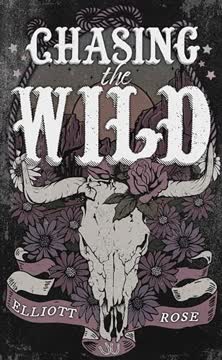Plot Summary
Kickball, Crushes, and Courage
At seven, Elouise Hall faces a humiliating kickball game, bullied by older kids. Her brother James and his best friend Tony defend her, but it's Tony's older brother, Beckett Stoleman, who truly comes to her rescue—hurling a kickball at her tormentor with perfect aim. In that moment, Elouise's childish admiration for Beckett crystallizes into a lifelong crush. The incident becomes a touchstone for her sense of self-worth and courage, and Beckett's kindness and strength leave an indelible mark on her heart. This formative event sets the tone for Elouise's journey: a blend of vulnerability, stubbornness, and a yearning for love and acceptance, all wrapped up in the innocence of childhood and the first flutterings of infatuation.
Birthday Wishes and Heartbreak
Elouise's eighth birthday brings both hope and humiliation. She invites Beckett to her party, only to be teased by her brother and his friends. The age gap between her and Beckett becomes painfully clear—he's sixteen, she's just a child. Despite her embarrassment, Elouise's crush deepens, fueled by Beckett's casual kindness and the fantasy of being noticed by someone so much older. The chapter captures the bittersweet ache of unrequited love and the awkwardness of growing up, as Elouise realizes that some dreams are out of reach, at least for now. Her longing is both innocent and intense, foreshadowing the emotional complexity that will define her relationship with Beckett in the years to come.
Growing Up, Growing Apart
As a teenager, Elouise's feelings for Beckett intensify, culminating in a disastrous Christmas party where she tries to impress him, only to witness him with another woman. The humiliation is crushing, and Elouise resolves to move on, burying her feelings and focusing on her own life. This chapter explores the pain of first heartbreak and the necessity of letting go, even when it feels impossible. Elouise's determination to forget Beckett marks a turning point in her emotional development, as she learns to protect herself from further hurt. The experience leaves her more guarded, but also more self-reliant, setting the stage for her eventual transformation into a confident, independent woman.
Return to Darling Lake
Years later, Elouise returns to her hometown as an adult, now a teacher at Darling Elementary. She's settled into a comfortable routine, her childhood crush on Beckett relegated to the past. But when Beckett unexpectedly reappears—older, rugged, and even more attractive—the old feelings resurface with a vengeance. Their first encounter is awkward and charged, filled with unspoken history and unresolved tension. Both are wary, shaped by their own disappointments and the passage of time. Yet, beneath the surface, the spark remains, hinting at the possibility of something more. The chapter captures the complexity of returning home: nostalgia, regret, and the tantalizing hope of a second chance.
Camping, Chaos, and Chemistry
Elouise reluctantly agrees to chaperone a school camping trip, only to discover that Beckett is the guest survivalist. The close quarters and shared responsibilities force them into each other's orbit, reigniting old feelings and creating new tensions. Amidst the chaos of wrangling children and navigating the wilderness, Elouise and Beckett find themselves drawn together, their banter laced with flirtation and longing. The natural setting strips away their defenses, exposing vulnerabilities and desires they've both tried to ignore. The chapter is a study in contrasts: the discomfort of sleeping on the ground versus the comfort of shared laughter, the fear of the unknown versus the thrill of possibility.
Survival Lessons and Old Flames
As Beckett leads the campers through survival scenarios, memories of their shared past bubble to the surface. Elouise is both embarrassed and flattered by his attention, while Beckett is captivated by the woman she's become. Jealousy rears its head when other adults—especially a creepy dad named Adam—show interest in Elouise, prompting Beckett to stake his claim in subtle and not-so-subtle ways. Their interactions are charged with unresolved tension, each touch and glance loaded with meaning. The chapter delves into the psychological undercurrents of their relationship: the push and pull of attraction, the fear of rejection, and the hope for redemption.
Tension by the Campfire
A series of mishaps—burnt hot dogs, spilled vodka, and a near-disastrous fire—bring Elouise and Beckett closer together. Their shared laughter and mutual support break down the walls between them, allowing for moments of genuine connection. As night falls, the campfire becomes a crucible for their emotions, illuminating both their desires and their doubts. Beckett's protectiveness and Elouise's vulnerability create a dynamic that is both comforting and electrifying. The chapter is a turning point, as the simmering tension between them finally boils over, leading to a night of confessions, comfort, and the first steps toward something real.
Nighttime Fears, Unexpected Comfort
Elouise's fears are realized when Adam tries to enter her tent in the middle of the night. Beckett intervenes, his protective instincts on full display as he physically removes the threat and ensures Elouise's safety. The adrenaline and vulnerability of the moment lead to an unexpected intimacy, as Beckett insists on staying with her for the night. Their shared bed becomes a sanctuary, a place where they can finally let down their guards and simply be together. The physical closeness is both comforting and charged, laying the groundwork for a deeper emotional and sexual connection. The chapter explores the interplay between fear and desire, safety and surrender.
Rekindled Sparks, Lingering Doubts
The morning after their night together is fraught with uncertainty. Elouise is elated but also anxious, unsure of what their intimacy means and whether Beckett feels the same. Their connection is tested by misunderstandings, jealousy, and the ever-present specter of their shared history. When Elouise sees Beckett with another woman, her old insecurities resurface, threatening to unravel everything they've built. The emotional fallout is intense, forcing both to confront their fears and decide what they truly want. The chapter is a raw exploration of vulnerability, trust, and the courage it takes to risk one's heart again.
Small Town, Big Secrets
Back in Darling Lake, Elouise and Beckett's relationship becomes the subject of gossip and speculation. Secrets from Beckett's past—including a failed marriage and unresolved family issues—come to light, challenging Elouise's trust and forcing Beckett to confront his own demons. The small-town setting amplifies every misstep and misunderstanding, making privacy impossible and forgiveness essential. Through honest conversations and painful admissions, they begin to rebuild their relationship on a foundation of truth and mutual respect. The chapter highlights the importance of communication, the weight of secrets, and the power of forgiveness.
Lovers, Liars, and Loss
Just as Elouise and Beckett find their footing, a series of escalating threats—vandalism, stalking, and ultimately abduction—shatter their sense of security. The true villain is revealed to be someone they both trusted, turning their world upside down. In a harrowing sequence, Elouise is kidnapped and forced to fight for her life, while Beckett races against time to save her. The ordeal tests their love and resilience, pushing them to their limits and forcing them to confront the darkest parts of themselves and each other. The chapter is a gripping exploration of fear, courage, and the lengths we go to for those we love.
Danger in the Darkness
Elouise's abduction is a crucible of terror and determination. Trapped and threatened by someone she once considered a friend, she must rely on her wits and inner strength to survive. Beckett's frantic search is a testament to his devotion, as he risks everything to bring her back. The rescue is both dramatic and cathartic, a moment of triumph that is hard-won and deeply felt. The aftermath is a mix of relief, trauma, and gratitude, as Elouise and Beckett cling to each other in the wake of their ordeal. The chapter is a testament to the power of love to overcome even the darkest of circumstances.
Rescue, Recovery, and Realization
In the aftermath of the trauma, Elouise and Beckett focus on healing—both individually and together. Therapy, family support, and the comfort of routine help them process what happened and begin to move forward. Their relationship deepens as they learn to trust each other completely, sharing their fears, hopes, and dreams. The experience leaves them changed but not broken, more committed than ever to building a life together. The chapter is a celebration of resilience, the importance of mental health, and the transformative power of love.
Healing, Home, and Hope
With the danger behind them, Elouise and Beckett turn their attention to the future. They move in together, blending their lives and families in a way that feels both natural and hard-won. The proposal is heartfelt and joyful, a culmination of years of longing and struggle. Surrounded by friends and family, they celebrate not just their love, but the community that supported them through every trial. The chapter is a testament to the enduring power of hope, the beauty of second chances, and the belief that love—no matter how smoky or complicated—can truly heal and transform.
Love, Safety, and Forever
The story concludes with Elouise and Beckett's wedding, a joyful affirmation of everything they've overcome. Their journey—from childhood crush to adult partners—has been marked by pain, passion, and perseverance. Together, they've built a home that is both a sanctuary and a celebration, a place where they can be fully themselves. Surrounded by loved ones, they step into their future with confidence and gratitude, knowing that whatever challenges lie ahead, they will face them together. The final chapter is a celebration of love in all its messy, beautiful glory—a smoky, darling forever.
Characters
Elouise Hall
Elouise is the emotional heart of the story—a woman shaped by early vulnerability, persistent longing, and the pain of unrequited love. Her journey from awkward, hopeful child to self-sufficient, compassionate adult is marked by both heartbreak and healing. As a teacher, she channels her empathy and strength into nurturing others, even as she struggles to believe she deserves love herself. Her relationship with Beckett is both a source of joy and anxiety, forcing her to confront her deepest fears and insecurities. Elouise's psychological arc is one of growth: learning to trust, to forgive, and to claim happiness on her own terms. Her resilience in the face of trauma, and her willingness to love again, make her a deeply relatable and inspiring protagonist.
Beckett Stoleman
Beckett is the archetype of the strong, silent type—loyal, capable, and haunted by his own past mistakes. His early indifference to Elouise is born of circumstance, not malice, and his return to Darling Lake is as much about seeking redemption as it is about finding home. Beckett's protectiveness is both his greatest strength and his biggest flaw, sometimes veering into overbearing territory. His journey is one of vulnerability: learning to open up, to accept help, and to believe that he is worthy of love. His devotion to Elouise is unwavering, and his willingness to fight for her—literally and figuratively—cements his role as both hero and partner. Beckett's growth is a testament to the power of second chances and the importance of facing one's demons.
James Hall
James is Elouise's older brother and Beckett's childhood friend, serving as both confidant and occasional antagonist. His teasing masks a deep affection for his sister, and his loyalty to Beckett is tested by the evolving dynamics of their relationships. James's role is to ground the story in family and community, providing both support and much-needed levity. His journey mirrors Elouise's in some ways, as he learns to let go of old grudges and embrace change. James's presence is a reminder that love—romantic or familial—is always complicated, but always worth fighting for.
Maddie
Maddie is Elouise's lifelong confidante, offering both practical advice and unfiltered commentary. Her own struggles with love and self-worth provide a counterpoint to Elouise's journey, highlighting the universal nature of longing and insecurity. Maddie's humor and loyalty are a balm in times of crisis, and her willingness to call Elouise out on her bullshit keeps the protagonist honest. Maddie's subplot—her own search for love—adds depth and dimension to the story, reminding readers that everyone deserves a happy ending.
Adam
Adam is the embodiment of the story's darker themes: obsession, entitlement, and the threat of violence. His initial friendliness masks a predatory nature, and his escalating behavior serves as a catalyst for the story's climax. Adam's actions force Elouise and Beckett to confront their own vulnerabilities and the reality of danger in even the safest of places. Psychologically, Adam represents the shadow side of desire—the line between admiration and obsession, protection and control.
Mr. Olson
Mr. Olson is a masterclass in misdirection—a seemingly harmless coworker whose true intentions are revealed only in the story's darkest moments. His betrayal is both shocking and deeply personal, forcing Elouise to question her own judgment and sense of safety. Mr. Olson's psychological profile is one of entitlement and resentment, his actions driven by a toxic mix of unrequited love and wounded pride. His role is to challenge the protagonists' sense of security and to underscore the importance of vigilance and self-advocacy.
Beckett's Parents
Beckett's parents provide a sense of stability and continuity, their home a touchstone for both Beckett and Elouise. Their acceptance and warmth contrast with the chaos of the outside world, offering a model of enduring love and partnership. Psychologically, they represent the possibility of healing and the importance of community in overcoming trauma.
Elouise's Parents
Elouise's parents are both a source of comfort and a source of stress, their well-meaning interference often complicating matters. Their love for Elouise is unquestionable, and their support during her darkest moments is a testament to the power of family. Their presence in the story highlights the generational nature of love and the ways in which our parents' choices shape our own.
Natasha
Natasha is Beckett's cousin and a key figure in his support system. Her pragmatic advice and unwavering loyalty help Beckett navigate the complexities of his relationship with Elouise. Natasha's own experiences with love and loss add depth to her character, making her both relatable and indispensable.
Kira
Kira is the ghost of Beckett's past—a reminder of mistakes made and lessons learned. Her reappearance threatens to derail Beckett and Elouise's relationship, forcing both to confront their insecurities and fears. Kira's motivations are complex, driven by a mix of regret, jealousy, and self-interest. Her presence in the story is a reminder that the past is never truly gone, and that true love requires both honesty and forgiveness.
Plot Devices
Dual Timeline and Alternating Perspectives
The narrative structure alternates between Elouise's childhood, adolescence, and adult life, as well as between her and Beckett's points of view. This dual timeline allows readers to witness the evolution of their relationship, the impact of formative events, and the ways in which the past continues to shape the present. The alternating perspectives provide insight into both protagonists' inner worlds, creating a sense of intimacy and empathy that deepens the emotional stakes.
Foreshadowing and Symbolism
The story is rich with foreshadowing—early incidents of bullying, unrequited love, and vulnerability presage later dangers and betrayals. Symbolic elements, such as the kickball game, the campfire, and the recurring theme of "smoke" and "fire," underscore the characters' emotional journeys and the transformative power of love. These devices create a sense of cohesion and inevitability, drawing readers into the story's emotional arc.
Forced Proximity and Survival Scenarios
The camping trip and subsequent survival lessons serve as both literal and metaphorical crucibles, forcing Elouise and Beckett to confront their feelings and vulnerabilities. The physical challenges of the wilderness strip away social niceties and defenses, allowing for moments of raw honesty and connection. These scenarios heighten the stakes and accelerate the development of their relationship.
Red Herrings and Misdirection
The story employs a series of red herrings—false leads and misdirections—to keep readers guessing about the true source of danger. Characters like Adam and Kira are introduced as potential threats, only for the real villain to be revealed in a shocking twist. This device keeps the narrative taut and engaging, while also exploring themes of trust, perception, and the hidden dangers that lurk beneath the surface.
Trauma, Healing, and Therapy
The story does not shy away from the realities of trauma, depicting both the immediate and long-term effects of violence, betrayal, and loss. Therapy, family support, and self-care are presented as essential tools for healing, and the characters' journeys are marked by setbacks as well as triumphs. This focus on mental health adds depth and realism to the narrative, making the eventual happy ending feel earned and authentic.
Analysis
Smoky Darling is a contemporary romance that transcends the boundaries of its genre, blending elements of suspense, psychological drama, and small-town charm. At its core, the novel is a meditation on the enduring power of love—its ability to heal, to transform, and to redeem. Through the intertwined journeys of Elouise and Beckett, the story explores the complexities of desire, the scars of the past, and the courage required to risk one's heart. The narrative's use of dual timelines and alternating perspectives creates a rich emotional tapestry, allowing readers to witness the characters' growth and vulnerability in real time. The novel's treatment of trauma and healing is both sensitive and unflinching, offering a nuanced portrayal of the ways in which love can both wound and restore. Ultimately, Smoky Darling is a celebration of resilience, hope, and the belief that even the smokiest of hearts can find their way home. The lessons are clear: love is messy, life is unpredictable, and happiness is always worth fighting for.
Last updated:
Review Summary
Smoky Darling receives mixed reviews, with ratings ranging from 1 to 5 stars. Many readers praise the steamy romance, humor, and chemistry between the main characters Elouise and Beckett. The age gap and childhood crush tropes are popular. Some criticize the lack of character depth and rushed relationship development. The book is noted for its small-town setting, suspenseful elements, and spicy scenes. While some readers love the alpha male hero, others find him problematic. Overall, it's a fast-paced, entertaining read for fans of contemporary romance.
Darling Series
Similar Books
Download PDF
Download EPUB
.epub digital book format is ideal for reading ebooks on phones, tablets, and e-readers.






















